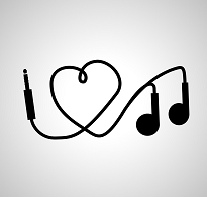It’s obvious that music is important to our classes. But do you know how and why in ways that help you maximize that knowledge?
You’ve seen that a class with great music seldom fails. You’ve probably also seen that a class with poor use of music feels flat, even if the profile is a solid one.
Why is music so important to our classes? What can music do for us? And how do we get the best from music’s benefits?
“Entrainment”: Music Seems Natural
My favorite exercise physiologist, Carl Foster, PhD, at the University of Wisconsin, Lacrosse, talks about how natural music is to exercise. (Is having a “favorite” exercise physiologist a sign of being a nerd?)
Foster says, “You go all the way back to rowers on the Roman Galleys. The guy is sitting there beating on his drum and he drives the basic rhythm of the rowing. Part of that is coordination—you want the rowers to row together—but part of it is that people will naturally follow a tempo. It’s just something about the way our brains work.” (By the way, doesn’t this quote just scream out for an indoor cycling–Roman galley meme?)
Foster goes on to say, “Basically you get with the beat of the music. You want to step at the rate the music is playing or you want to pedal a cycle at the rate of the dominant beat of the music.”
This synchronized movement is called entrainment, which is defined as “(1) to draw along with or after oneself, or (2) to draw in and transport by the flow of a fluid.”
“All things being equal, I think the stronger and more obvious the beat is, the more likely you will be to follow it,” says Foster.
We know entrainment feels natural to us and that it works to make a class more enjoyable, but what about its effect on our actual performance? Do we really perform better with music or does it just make class more enjoyable?
Intervals More Enjoyable


Hi Jacquelin… I teach more like you do. There is a school of thought to match more exactly but I personally teach to the generalized feeling.
Looking forward part 2, Bill! I teach with power following a non-linear periodization/plan. Honestly I don’t worry too much about matching bpm to rpm (as an aside, I’m one of those challenged to hear the beat) but agree that the energy of the music can enhance the effort/experience.